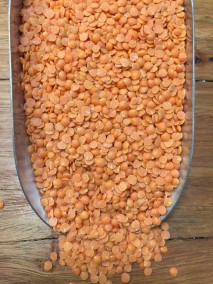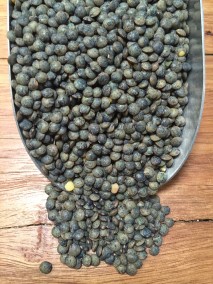100gm = ½ cup
cannellini beans (conventional, 100gm)
$0.66
Description
Cannellini beans
Also known as white kidney beans, Italian white kidney beans or fasolia beans. Cannellini beans are medium sized and kidney shaped, with a tough seed coat. They are creamy white when cooked and have a fluffy texture and slightly nutty, mild flavour.
Cannellini beans:
- have a low glycaemic index- GI = 31 – one of the lowest glycaemic beans. As a low GI food, cannellini beans metabolise slowly providing steady energy for several hours after consumption.
- contain both soluble and insoluble dietary fibre. Soluble fibre forms a gel like substance in the digestive tract which binds with bile in the digestive system, preventing cholesterol reabsorption. Insoluble fibre prevents constipation.
- are high in molybdenum– which plays a vital role in detoxification of the body. Molybdenum is a key component of sulphite oxidase which detoxifies sulphites.
- are high in antioxidants– which protect your body from free radicals linked to the development of degenerative conditions such as cardiovascular disease, atherosclerosis, Alzheimer’s disease
- are rich in folate- vitamin B9. Folate reduces the level of the amino acid homocysteine, which is associated with an increased risk for heart attack and stroke
- are rich in thiamine – vitamin B1– necessary for formation and function of brain cells. Thiamine is a key component in the synthesis of acetycholine (a neurotransmitter) essential for memory. Alzheimer’s disease is clinically characterized by a decrease in acetylcholine levels
- good source of the trace mineral manganese which is an essential cofactor in a number of enzymes important in energy production and antioxidant defences.
- A good source of protein, when combined with a whole grain such as whole wheat pasta or brown rice provides protein that is comparable to that of meat or dairy foods



